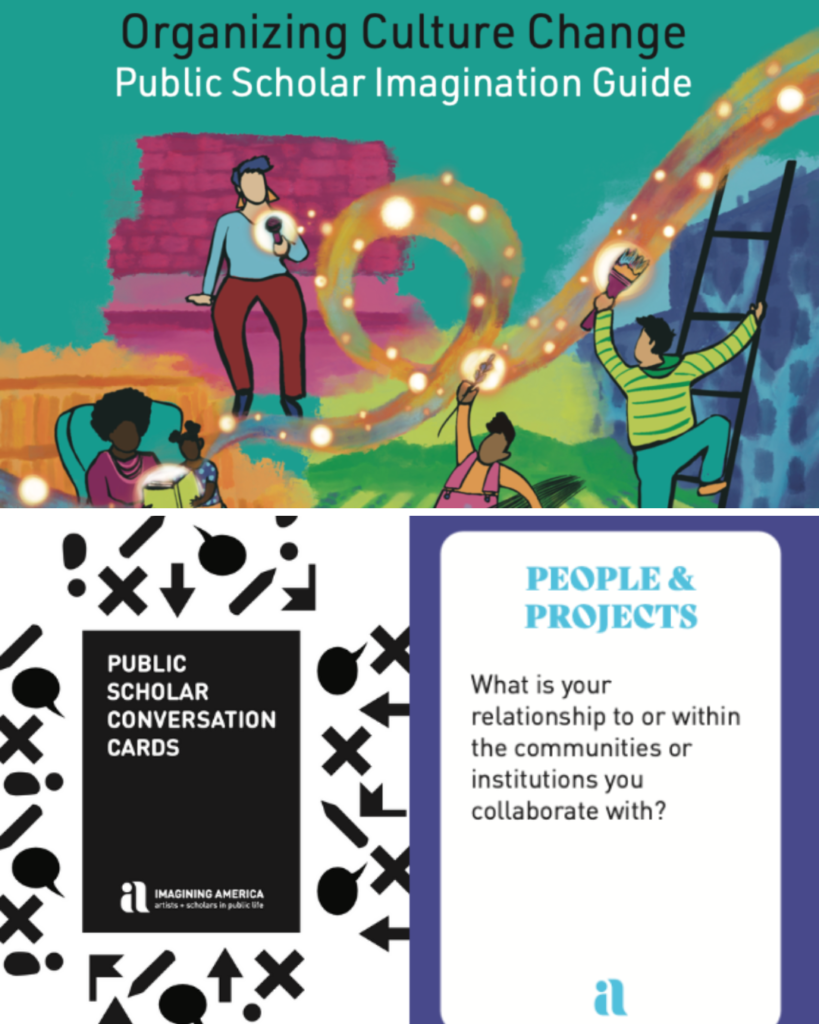Assessing the Practices of Public Scholarship
Imagining America’s Assessing the Practices of Public Scholarship (APPS) is a collective that seeks to bridge the gap we and others too often encounter between assessment as bureaucratic management and assessment as a transformative process that involves all stakeholders in values-engaged exploration of the processes, relationships, and results of collaborative work.
We are driven by values that have been sourced through dialogue, critical reflection, and iteration that uphold our work. Those values are: full participation, co-creation, generativity, rigor, practicability, and resilience.
APPS Goals
• Document the landscape of Democratically Engaged Assessment (DEA) as a form of transdisciplinary inquiry rooted in diverse bodies of knowledge and practice.
• Build knowledge and evidence about the legitimacy, validity, and effectiveness of democratically engaged approaches to assessment of community engagement and public scholarship.
• Co-create strategies that cultivate capacities for using democratically engaged approaches to assessment in community-academic partnerships.
• Contribute to efforts to shift prevailing ways of knowing in assessment towards deeper commitments to full participation, co-creation, resilience, and generativity.
• Support DEA approaches that further the practice of Democratic Civic Engagement (DCE) in public life.
APPS Strategies
• Collect, adapt, create, and disseminate frameworks and tools that enable democratically engaged approaches to assessment at varying scales and in diverse contexts.
• Identify and share case studies, stories, and critical reflections that illuminate democratically engaged assessment values, approaches, and uses.
• Engage IA members and broader communities of assessment practice in demonstration projects related to DEA.
• Co-create original scholarship and analysis that synthesizes extant and emergent knowledge from this initiative for a wider audience.
• Curate and develop resources and facilitate learning opportunities for members through IA’s convenings, publications, and other forums.
APPS Team
• Joe Bandy, Vanderbilt University
• Julia Metzker, Washington Center for Improving Undergraduate Education, Evergreen State College
• Sarah Stanlick, Global School, Worcester Polytechnic Institute
• Mary F. Price, Indiana University Purdue University Indianapolis (IUPUI)
• Anna Sims Bartel, Cornell University
• Patti H. Clayton, PHC Ventures, IUPUI, & UNCG
• Stephani Etheridge Woodson, Arizona State University
Democratically-Engaged Assessment
Since 2010, APPS has been working to reimagine and nurture cultures of assessment, particularly using an integrated approach to assessing the practices of public scholarship that brings together multiple voices, values, and methods. Our inquiry has led us to develop what we call Democratically Engaged Assessment (DEA).
DEA is an orientation to and framework for assessment that is explicitly grounded in, informed by, and in dialogue with the contested values and commitments of democratic civic engagement. It is a framework developed by the APPS collective to give us the tools, orientation, and commitment to the capacity of assessment to transform and empower.
For more information on DEA, including our 2018 white paper that explored in depth the framework, thinking, and “found pilots” to support the model, check out the DEA page here.
DEA Core Values
DEA offers an approach to assessment not merely as measuring, documenting, and reporting outcomes but also as a way to explore shared realities and co-create new possibilities. We regard a democratic and justice-oriented transformation of assessment methods and the community engagement efforts they support to be the overarching ideals — the ends — that motivate DEA. We see the following six core values, interdependent and in some ways overlapping, as comprising the heart of democratic community engagement and DEA: full participation, co-creation, generativity, rigor, practicability, and resilience.
DEA is rooted in the commitments of Democratic Civic Engagement (DCE). DCE’s purpose, as described by Saltmarsh, Hartley & Clayton in their Democratic Engagement White Paper, “refers specifically to enhancing a public culture of democracy… and alleviating public problems” (2009, p. 9). More than just an attention to ends, it also attends to a process of community engagement that “seeks the public good with the public and not merely for the public” (2009 p. 9), one committed to inquiry and practice that is co-creative, inclusive, and empowering of all voices in creating a more just and democratic public culture.
Approached this way, assessment contributes to transformative processes and outcomes of community engagement and public scholarship. The process of assessment mirrors the ideals of democratization by creating possibilities — new ways of being — arising from new relationships and the knowledge they produce.
For a more expansive introduction to DEA — its history, development, nuances, tensions, stories and cases, as well as many tools for its application — please see the APPS White Paper: Democratically Engaged Assessment: Reimagining the Purposes and Practices of Assessment in Community Engagement.
Join us! Contact co-chairs Julia Metzker or Sarah Stanlick to learn more about current initiatives and upcoming opportunities.


